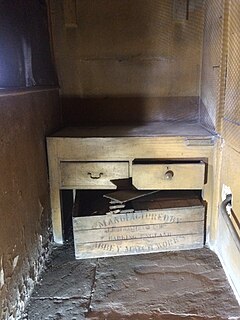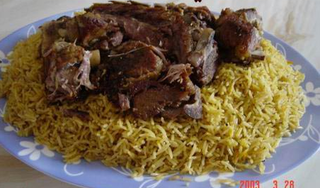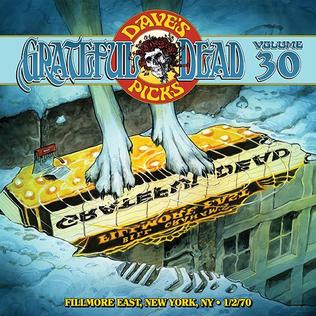This article needs additional citations for verification .(April 2021) (Learn how and when to remove this template message) |

A clay drum is a variety of percussion instrument found in various parts of the world. It may refer to:
This article needs additional citations for verification .(April 2021) (Learn how and when to remove this template message) |

A clay drum is a variety of percussion instrument found in various parts of the world. It may refer to:
The Wilhelm scream is a stock sound effect that has been used in a number of films and TV series, beginning in 1951 with the film Distant Drums. The scream is usually used when someone is shot, falls from a great height, or is thrown from an explosion. The sound is named after Private Wilhelm, a character in The Charge at Feather River, a 1953 Western in which the character gets shot in the thigh with an arrow. This was its first use following its inclusion in the Warner Bros. stock sound library, although The Charge at Feather River is believed to have been the third film to use the effect. The scream is believed to be voiced by actor Sheb Wooley.

The daf, is a large Kurdish and Persian frame drum used in popular and classical music. It is also used in religious ceremonies among Kurds. The Daf is considered the national musical instrument of Pakistan.

The American alligator, sometimes referred to colloquially as a gator or common alligator, is a large crocodilian reptile native to the Southeastern United States and northeastern Mexico. It is one of two extant species in the genus Alligator within the family Alligatoridae; it is larger than the only other living alligator species, the Chinese alligator.
A hide or skin is an animal skin treated for human use. The word "hide" is related to the German word "Haut" which means skin. The industry defines hides as "skins" of large animals e.g. cow, buffalo; the skins refer to "skins" of smaller animals: goat, sheep, deer, pig, fish, alligator, snake, etc. Common commercial hides include leather from cattle and other livestock animals, buckskin, alligator skin and snake skin. All are used for shoesclothes, leather bags, belts, or other fashion accessories. Leather is also used in cars, upholstery, interior decorating, horse tack and harnesses. Skins are sometimes still gathered from hunting and processed at a domestic or artisanal level but most leather making is now industrialized and large-scale. Various tannins are used for this purpose. Hides are also used as processed chews for dogs or other pets.

The khol is a terracotta two-sided drum used in northern and eastern India for accompaniment with devotional music (bhakti). It is also known as a mridanga, not to be confused with mridangam. It originates from the Indian states of West Bengal, Assam and Manipur. The drum is played with palms and fingers of both hands.

A larder is a cool area for storing food prior to use. Originally, it was where raw meat was larded—covered in fat—to be preserved. By the 18th century, the term had expanded. Now a dry larder was where bread, pastry, milk, butter, or cooked meats were stored. Larders were commonplace in houses before the widespread use of the refrigerator.
Middle Eastern music refers to different various music styles that span across the Middle East. The various nations of the region include the Arabic-speaking countries of the Middle East, the Iranian traditions of Persia, the Jewish music of Israel and the diaspora, Armenian music, Azeri Music, the varied traditions of Cypriot music, the music of Turkey, traditional Assyrian music, Coptic ritual music in Egypt as well as other genres of Egyptian music in general, and the Andalusian music very much alive in the greater Middle East, all maintain their own traditions. It is widely regarded that some Middle-Eastern musical styles have influenced Central Asia, as well as Spain, and the Balkans.

Mandi is a traditional dish that originated from Hadhramaut, Yemen, consisting mainly of meat and rice with a special blend of spices, cooked in a pit underground. It is extremely popular and prevalent in most areas of the Arabian Peninsula, and even considered a staple dish in many regions. It is also found in Egypt, the Levant, and Turkey.

A frame drum is a drum that has a drumhead width greater than its depth. It is one of the most ancient musical instruments, and perhaps the first drum to be invented. It has a single drumhead that is usually made of rawhide, but man-made materials may also used. Some frame drums have mechanical tuning, while on many others the drumhead is tacked in place. The drumhead is stretched over a round, wooden frame called a shell. The shell is traditionally constructed of rosewood, oak, ash etc. that has been bent and then scarf jointed together; though some are also made of plywood or man-made materials. Metal rings or jingles may also be attached to the frame. In many cultures larger frame drums are played mainly by men in spiritual ceremonies, while medium-size drums are played mainly by women.

The naqqāra, nagara or nagada is a Middle Eastern drum with a rounded back and a hide head, usually played in pairs. It is thus a membranophone of the kettle drum variety.
A Florida Western can be used to describe a small number of films and literature set in the 19th century, particularly around the time of the Second Seminole War. Not a significant number of these films have been made, as most Hollywood and other genre westerns are usually located in other regions of the United States, particularly the former frontier territories of "the West".

Gut River is a river, beach and small hamlet on an isolated stretch of south facing coastline in Manchester, Jamaica. The name is said by the locals to derive from the German word for good.

The Alligator Effigy Mound is an effigy mound in Granville, Ohio, United States. The mound is believed to have been built between AD 800 and 1200 by people of the Fort Ancient culture. The mound was likely a ceremonial site, as it was not used for burials.

A tabla is a pair of twin hand drums from the Indian subcontinent. Since the 18th century, tabla has been the principal percussion instrument in Hindustani classical music, where it may be played solo, as accompaniment with other instrument and vocals, and as a part of larger ensembles. Tabla is also frequently played in popular and folk music performances in India, Bangladesh, Pakistan, Nepal, Afghanistan and Sri Lanka. The tabla is also an important instrument in the bhakti devotional traditions of Hinduism and Sikhism, such as during bhajan and kirtan singing. It is one of the main qawali instrument used by Sufi musicians. Tabla also features in dance performances such as Kathak.

A musical instrument is a device created or adapted to make musical sounds. In principle, any object that produces sound can be considered a musical instrument—it is through purpose that the object becomes a musical instrument. A person who plays a musical instrument is known as an instrumentalist. The history of musical instruments dates to the beginnings of human culture. Early musical instruments may have been used for rituals, such as a horn to signal success on the hunt, or a drum in a religious ceremony. Cultures eventually developed composition and performance of melodies for entertainment. Musical instruments evolved in step with changing applications and technologies.

A tandoor also known as tannour is predominantly a cylindrical clay or metal oven used in cooking and baking. The tandoor is used for cooking in Southern, Central, and Western Asia, as well as in the South Caucasus.
The Duhulla is a type of bass drum that is commonly found in Arabic percussion. Usually, it is played along with the Tabla, Goblet drum, Darabuka, Riq (tambourine), and Daf Duhulla, sometimes referred to as Doholla, or Bass Darabuka, is mostly found across the Middle East. Used mostly in festival settings, it is part of many trans-regional traditional music and dance across the Arab world. It is very similar to the Darabuka, but it is a larger version and has a deeper sound.
The alligator drum is a type of drum once used in Neolithic China, made from clay and alligator hides.

Alligator Creek is a rural locality in the City of Townsville, Queensland, Australia. In the 2016 census, Alligator Creek had a population of 1,353 people.

Dave's Picks Volume 30 is a 3-CD live album by the rock band the Grateful Dead. It contains the complete early and late shows recorded on January 2, 1970 at the Fillmore East in New York City, along with five songs from the band's performances at the same venue the following night. It was released on May 3, 2019 in a limited edition of 20,000 copies.